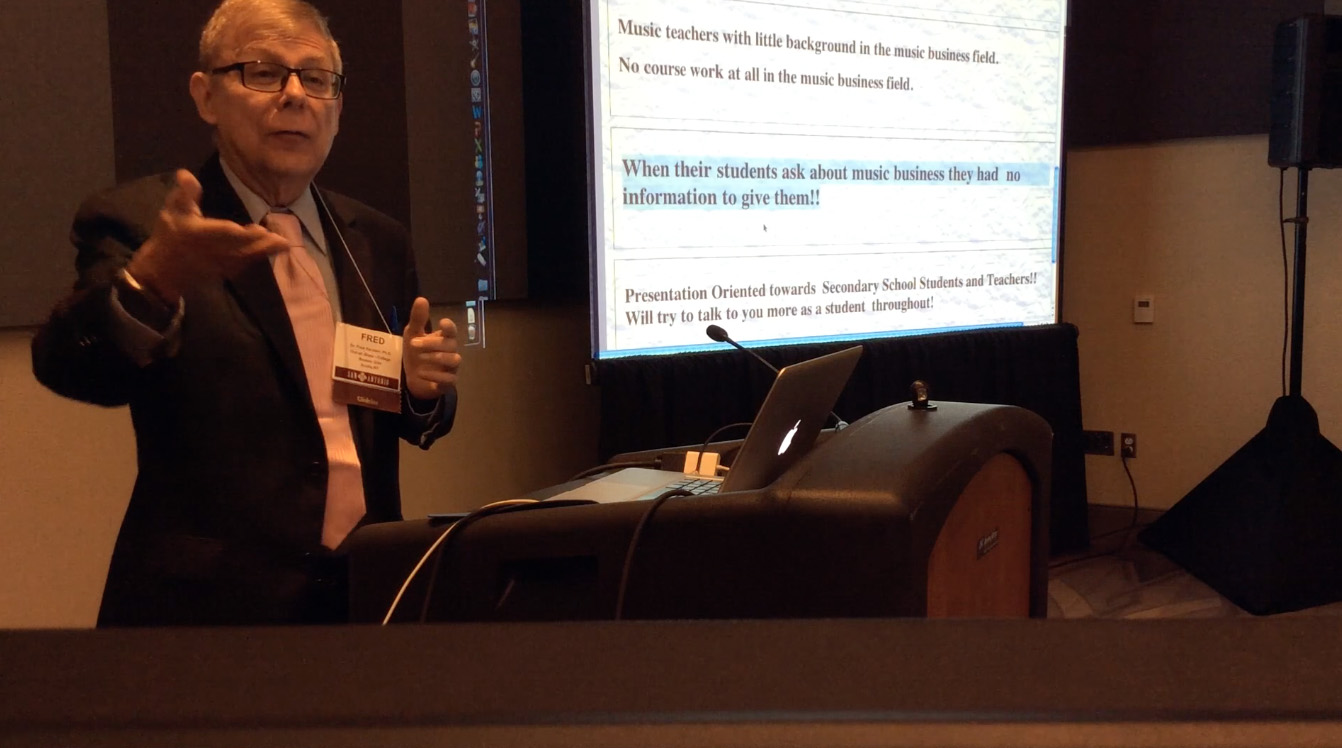
TMEA
2016 Clinic/Convention February
10-13, 2016
San Antonio, Texas
What You Should Know About
Music Business Degrees And Don't!
Presenter: Dr. Fred
Kersten
Presider: Dr. Stephen Crawford
Professor of Music History, Coordinator for Music History & Literature
Director of Percussion Studies
University of Mary Hardin-Baylor
Presentation
Overview
Music teachers, advising their
students contemplating a music career, are requested to provide
information about music degree programs as authoritative resource
persons. The usual recommendation is towards music education or
performance. However, over the last few years there is an
increasingly new program being offered at the college level in the form
of a music business degree.
Many music teachers have
not gone
through training in this area and most music education programs are
barren of even an overview music business course as part of their music
education graduation requirements. This leaves teachers unprepared to
assist their students in deciding whether to apply for this degree, and
limits their abilities as an information source for
advisement/counseling.
Research included in this presentation will provide
a strong primer/overview as to the basic answers to questions from both
music teachers and high school students regarding the realistic
value/parameters of music business programs available. Data will
be compiled through an exploratory and comparative process utilizing
resources from music business programs at selected universities, NAMM,
and questionnaire responses from music business faculty/ practitioners.
The focus of this qualitative inquiry research study
will be to develop
a basic primer of information that may be referred to by music teachers
counseling students considering music business higher education study.
This should assist students trying to decide whether to pursue the
music business major and teachers assisting in the advisement process.
Topical emphasis will include:
1. Overview of music business degree program components:
a. Music Management.
b. Copyright and publishing specialties.
c. Artist management.
d. Music Marketing.
e. The Internship its value, effectiveness, and
importance for future careers.
f. Audio speciality component minor.
2. Which students should consider a music business degree?
a. Assessing applicable current abilities and
interest.
b. Musical objectives.
c. Career goals.
3. Music Business, Music Performance, or Music Education-which do I
select?
a. General credit and course overviews.
b. How should a program be scrutinized to and
evaluated by students?
4. National Association of Music Merchants (NAMM) influences and
resources for utilization.
a. NAMM Young Professionals.
b. NAMM NeXT Generation.
c. Music Business Basic Skills.


